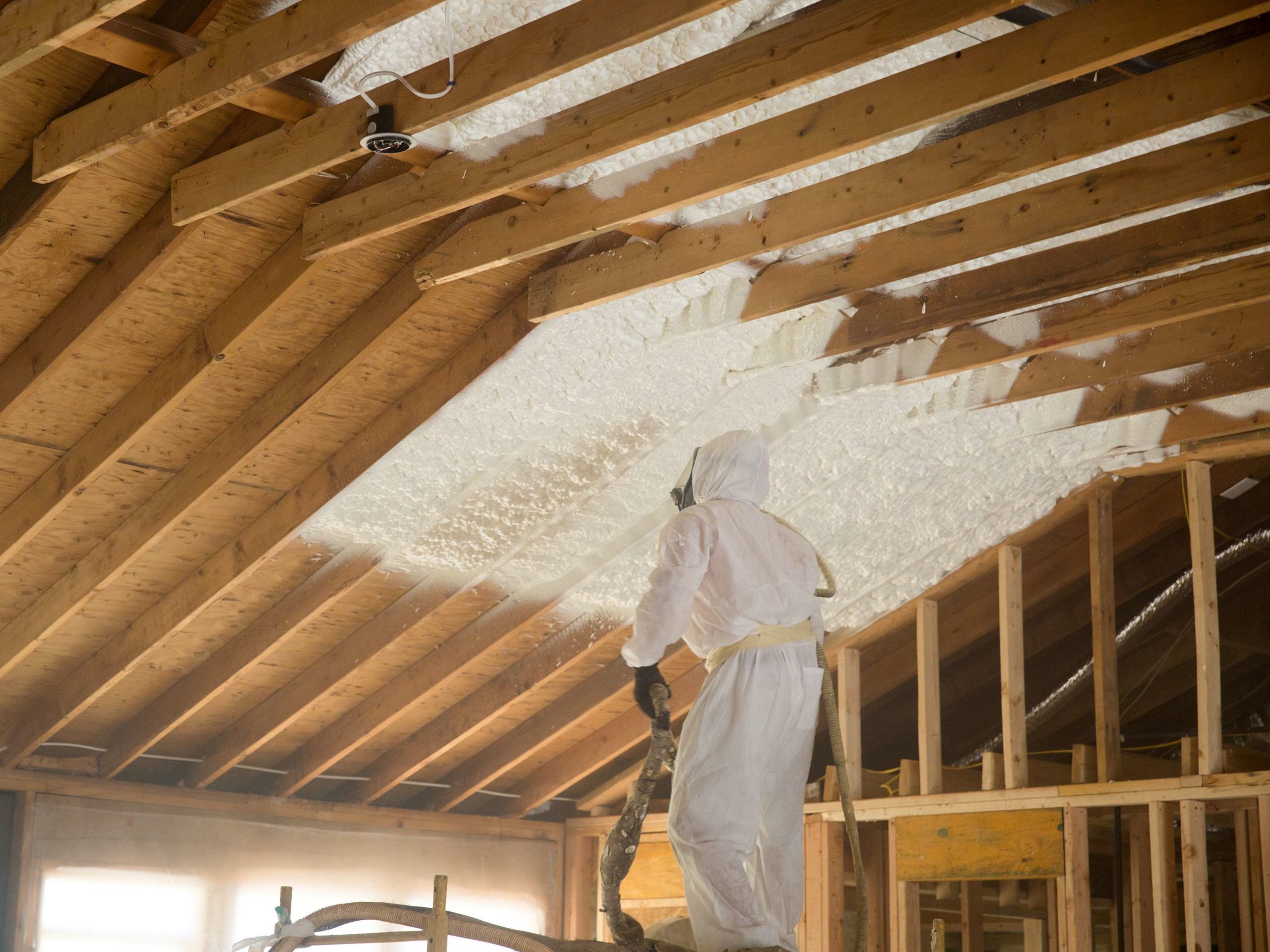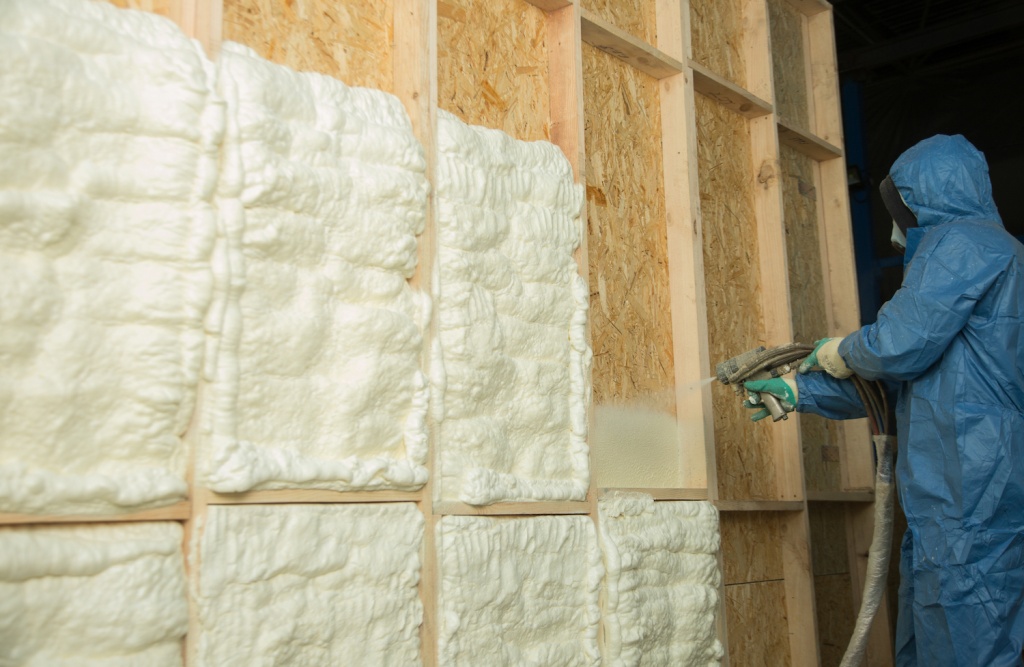Frequently Asked Questions About Spray Foam Installation and Use
Frequently Asked Questions About Spray Foam Installation and Use
Blog Article
Spray Foam: The Ultimate Remedy for Air Sealing and Insulation
Spray foam insulation has arised as a leading remedy for effective air sealing and thermal insulation, using an unique combination of properties that set it besides typical methods. Its ability to broaden and fill up voids makes it specifically effective in preventing air leakage, which can substantially influence power performance. Comprehending the full range of its benefits, installation processes, and comparisons with other insulation types is crucial for making informed choices. As we discover these aspects, the implications for both brand-new constructions and retrofits come to be significantly substantial. What variables should affect your option?
What Is Spray Foam?
Spray foam is a functional insulation product that combines the concepts of air securing and thermal resistance to enhance power performance in buildings. Made up mostly of polyurethane or other comparable substances, spray foam is applied as a fluid that broadens upon call with surface areas, creating a strong, constant layer of insulation. This unique residential or commercial property permits it to fill up gaps, splits, and spaces that typical insulation products may ignore, offering a premium air seal.
There are two major kinds of spray foam: open-cell and closed-cell. Open-cell spray foam is lighter and more versatile, offering exceptional sound absorption and a reduced R-value per inch - Spray Foam. In contrast, closed-cell spray foam is denser, supplying a higher R-value, wetness resistance, and included structural honesty to building parts
The application process normally involves specific tools, guaranteeing a smooth application that follows different substratums, including metal, concrete, and timber. This adaptability makes spray foam appropriate for both brand-new building and constructions and retrofitting existing structures. Its capability to develop an airtight barrier substantially adds to decreasing energy intake and boosting indoor air quality, consequently making it a recommended selection among homeowners and contractors alike.
Benefits of Spray Foam Insulation
Among one of the most substantial benefits of spray foam insulation is its remarkable ability to produce a continual air obstacle, which effectively minimizes energy loss. Unlike conventional insulation products, spray foam expands to fill up splits and voids, making sure that air leak is dramatically reduced. This characteristic not only enhances energy efficiency yet additionally brings about decrease energy expenses in time.
Furthermore, spray foam insulation offers exceptional thermal resistance, contributing to an extra secure interior atmosphere. Its high R-value per inch allows for effective insulation in constrained rooms, making it suitable for attics, walls, and crawl spaces. The moisture-resistant buildings of spray foam aid avoid mold and mildew and mold growth, advertising healthier living problems.
One more crucial advantage of spray foam insulation is its sound-dampening high qualities (Spray Foam). It efficiently lowers noise transmission in between spaces, creating a quieter and a lot more comfortable home atmosphere. The resilience of spray foam additionally sticks out, as it does not droop or clear up over time, preserving its efficiency throughout its life expectancy
Just How Spray Foam Works
Recognizing how spray foam insulation functions is important for valuing its effectiveness in air securing and thermal resistance. Spray foam insulation contains two key components: isocyanate and polyol resin. When these components are blended, they undertake a chemical reaction that triggers the product to broaden swiftly, creating a dense foam that loads dental caries, cracks, and spaces.
As the foam increases, it complies with surfaces, forming an impermeable seal that dramatically reduces air infiltration. This characteristic makes spray foam insulation extremely reliable at preventing drafts and moisture penetration, which can cause power loss and damage over time. Furthermore, the closed-cell variation of spray foam supplies premium thermal resistance because of its stiff framework, properly decreasing warmth transfer.
The unique residential properties of spray foam permit it to adapt uneven surface areas, making certain thorough insurance coverage and a smooth obstacle. Consequently, spray foam insulation not only improves energy efficiency but additionally adds to boosted interior air high quality by decreasing the build-up of toxins and irritants. Eventually, comprehending the mechanics behind spray foam underscores its duty as a premium option for insulation and air sealing in both residential and commercial applications.
Installment Refine Overview

Prior useful reference to installment, the space needs to be adequately cleaned up and prepped, making sure that surface areas are devoid of particles, dirt, and moisture. This action is critical because contaminants can jeopardize bond and total efficiency. Once the area is prepared, the application involves mixing both elements of the spray foam, which broadens upon get in touch with and loads gaps effectively.
Trained professionals should conduct the installation, utilizing specific tools to make certain consistent insurance coverage and optimum thickness. Security preventative measures, consisting of using protective gear and guaranteeing proper ventilation, are vital during this process. After application, the foam generally cures quickly, creating a strong web barrier that enhances energy performance.
Contrasting Spray Foam to Standard Insulation
When examining insulation options, spray foam insulation stands out in contrast to conventional products such as fiberglass and cellulose. Unlike fiberglass and cellulose, which can enable air seepage, spray foam broadens upon application, filling holes and spaces to create a closed seal.
Additionally, spray foam supplies a higher R-value per inch than standard insulation types, supplying more efficient thermal resistance in a thinner profile. This characteristic is specifically helpful in spaces with minimal cavity depth. Spray foam is resistant to wetness and mold development, which can be a substantial issue with cellulose and fiberglass, specifically in humid atmospheres.
Nonetheless, spray foam insulation usually lugs a greater upfront expense than its typical counterparts. Property owners have to weigh this preliminary financial investment versus lasting power savings and performance advantages. Inevitably, while both insulation kinds serve their purpose, spray foam arises as an advanced solution for modern insulation demands, particularly in terms of air sealing and thermal effectiveness.

Conclusion
In summary, spray foam insulation represents an extremely efficient option for accomplishing ideal air sealing and thermal resistance. Its distinct buildings, consisting of wetness resistance and noise dampening, make it suitable for various applications in both new constructions and retrofitting tasks (Spray Foam). The initial prices might be higher contrasted to standard insulation materials, the lasting benefits, such as significant power cost savings why not check here and improved interior air quality, warrant the investment and underscore its worth in modern structure methods.
Spray foam insulation has actually emerged as a leading solution for efficient air sealing and thermal insulation, using a distinct mix of residential properties that set it apart from typical techniques.Spray foam is a functional insulation material that incorporates the principles of air securing and thermal resistance to enhance power efficiency in buildings.When evaluating insulation choices, spray foam insulation stands out in contrast to conventional products such as fiberglass and cellulose. Ultimately, while both insulation kinds offer their purpose, spray foam arises as an extra sophisticated remedy for modern insulation requirements, specifically in terms of air sealing and thermal effectiveness.
In recap, spray foam insulation represents an extremely reliable solution for accomplishing ideal air securing and thermal resistance.
Report this page